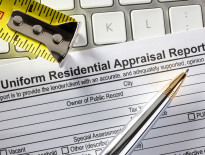Tom Cafarella
Title: Co-owner, Ocean City Development
Age: 34
Experience: 11 years
Tom Cafarella started flipping houses with a partner when he was just 23. Today he buys and flips one or two houses a week and has a growing real estate brokerage. Working in real estate during the recession left a lasting imprint on him and it still informs his conservative approach to business. All it took was six months in an office job to convince him to take the entrepreneurial path and he’s never looked back.
Q: How do you get into real estate development at such a young age?
A: My business partner is one of my best friends. When we were in college, I was studying pre-med. About three years into it, I did an internship for a doctor at Dana-Farber and I realized I didn’t like it. I loved business and loved reading business books. So my friend told me I should get into business. He was an accounting major and he convinced me that one of the easiest ways to learn business is to get into accounting, so I took his word for it. We both graduated, got licensed and worked for big CPA firms out of college. Within six months, we knew we didn’t fit in. We were misfits. We were both pretty entrepreneurial and that was the exact opposite of an entrepreneurial environment.
My grandfather was a landlord who owned a lot of properties in Somerville, Revere and East Boston. I grew up in Revere and he was one of the only people I knew who was financially successful. So from a young age, I wanted to work in real estate, but my parents discouraged me. They wanted me to do well in school and get a white-collar job. When I was doing pre-med they were extremely excited. Then when I switched to accounting they were OK with that as a fallback, but it wasn’t a good fit for me at all. So we got started by doing some flipping while we were working our full-time job. We were young, neither of us was married or had a mortgage. If we tried to start it today, we both have two kids, and it just wouldn’t be possible.
Q: Your business was still fairly young when the real estate market crashed. How did it effect you?
A: Our first couple of projects in late 2005 were condo conversions in the Lynn area and we got out just before the crash. We got very lucky. We were only doing one at a time in the beginning and we only had to hold one property. We just kept it as a rental. Once we got good at it was when the market crashed and there were so many good deals out there. From 2007 to 2010, it was so easy to find a good deal. Today it’s a lot harder. I don’t know how long things can be this crazy. Some prices just don’t make sense any more. People are paying $700,000 for ranches just to knock them down. We’ll see how much longer it will last.
We want to make sure in everything we do, that we’re prepared for when the market crashes. We will never build a new house in a higher-end community because of the costs, we can’t hold them as rentals. Everything we do, we look at what’s the worst-case scenario. It’s kind of like a stress test. Can we hold it if worse comes to worst?
Q: How are you growing your brokerage?
A: We went from six to 70 agents in a year. We have a value proposition that really no other brokerage can compete with. When we’re prospecting sellers for development projects, we generate a ton of leads. We find homeowners who want to sell, but their houses aren’t a good candidate for our development company. Out of 20 appointments, 19 make no sense to sell to Ocean City. So three or four years ago, one of my agents pointed out that those other 19 homeowners are ready to sell their homes, let’s try and see if we can do something with them. I told him to see what he could do and he started listing all these houses. It’s grown so quickly because we have a lot of seller leads, which most brokerages just don’t have. We spread those leads around to all of our agents.
Q: What are your thoughts on the current market?
A: Today is a horrible time to buy. Everyone buys based on their monthly payment. Most of the price appreciation that has happened recently is based on low interest rates. As rates fall, prices go up. What happens when interest rates go back up? The value of their home will get killed because buyers won’t be able to afford to buy the house at that price with higher rates.
Low interest rates is a marketing thing. It sounds great, but all it does is increase the amount you pay for a house. You’re 100 times better off buying a house for $50,000 at an 18 percent interest rate because you can refinance every time rates drop. You lock in an expensive house at a 4 percent rate and then rates go up to 8, your home value drops and you can never refinance.
I’d rather buy in a high-interest rate environment, especially if it’s a long-term plan. Prices are higher than ever and rates are lower than ever. We’re in a dangerous interest rate environment. They can’t go any lower and when they go up, it’s going to be bad.
Cafarella’s Five Favorite Books:
- “The 4-Hour Workweek”
- “The E-myth”
- “Rich Dad, Poor Dad”
- “Crash Proof”
- “The Millionaire Next Door”




 |
| 



